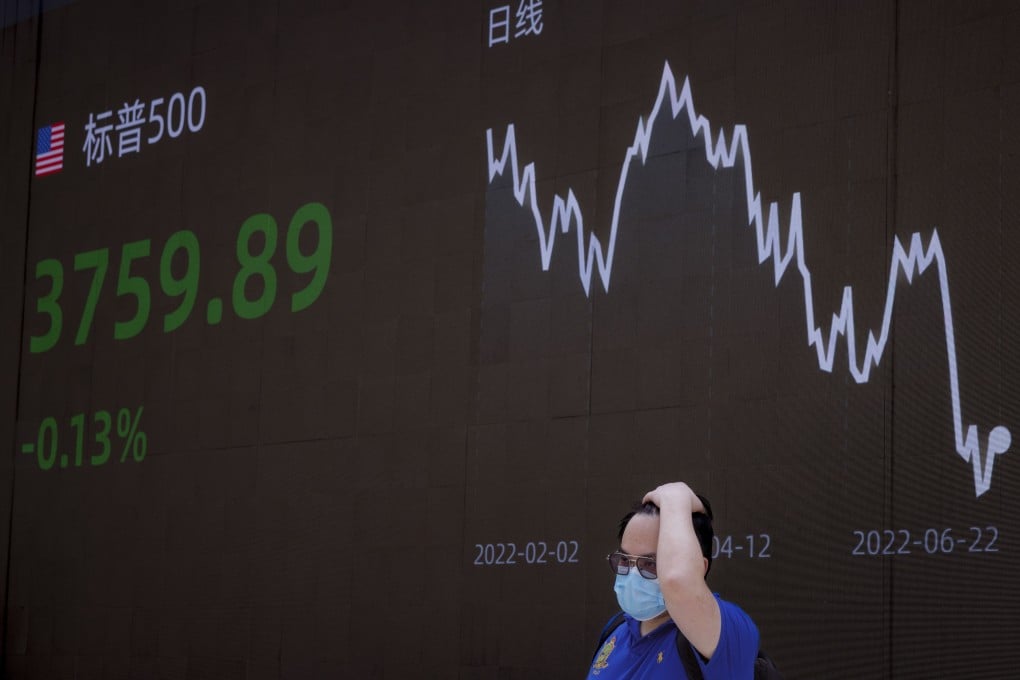Macroscope | What does gloomy US and China economic outlook mean for stock prices?
- Downward moves in stock prices have made price-to-earnings ratios look more realistic, but the Fed’s efforts to curb rising inflation may not yet be reflected in lower earnings
- Meanwhile, China’s persistence with its zero-Covid policy calls into question its GDP growth goal

There is a real risk that both the Chinese and US economies could be moving into a period of underperformance. This would clearly be bad news for global economic activity but it would also require a sea-change in market pricing.
Nevertheless, there now has to be a material risk that the central bank’s efforts to curb rising inflation will not just slow economic activity in the US but even push the American economy into recession, a risk that Powell has acknowledged.
“We are not trying to provoke, and I don’t think we will need to provoke, a recession,” Powell told the US Senate Banking Committee, but he also admitted a US recession was “certainly a possibility”. Former New York Fed chief Bill Dudley, writing last week for Bloomberg, has gone further and thinks a US recession is now “inevitable within the next 12 to 18 months”.
Perhaps this is also a good moment to recall the quip of German economist Rudi Dornbusch, who died 20 years ago, that “no post-war recovery has died in bed of old age – the Federal Reserve has murdered every one of them”.
This is not to suggest the Fed is wrong to pursue its current strategy but to recognise that monetary tightening is a blunt instrument and can have unwanted consequences.
